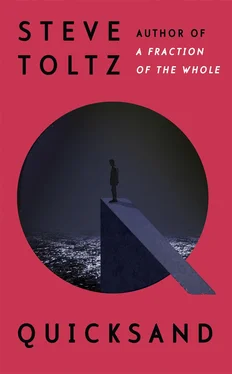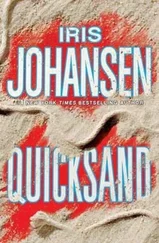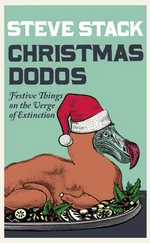‘Sure.’
‘You know how while we’re enjoying reading dystopian fiction, for half our population this society is dystopia?’
‘Aldo.’
‘Wait. You know how our fear of turning into our parents has become the fear of inheriting copies of their genetic mutations?’
‘Aldo.’
‘Hold on. You know how nobody who complains about income inequality thinks they personally have too much money?’
‘Aldo.’
‘Just wait. You know how when people talk of First World problems they forget to mention Alzheimer’s and dementia?’
‘Can you —’
‘Wait!’ A mouthful of beer spills onto his shirt. ‘You know how we’re still stuck with this prehistoric flight-or-fight mechanism and now our bodies pointlessly secrete cortisol when we’re just running for the bus?’
‘And?’
‘And how thanks to online comment boards, more people than ever before know what it feels like to be reviled?’
‘What’s —’
‘You know how unrequited love has no real-world applications?’
‘What’s your idea?!’
‘Disposable toilets.’
A smile forms that seems surgically rendered. He clearly feels a vicarious thrill, my thrill, at hearing his own idea.
‘What’s that got to do with … How would that even work?’
‘No, wait, hang on,’ he says with a frown, his hands clasped as in prayer, and I let him go on, about how ‘impostor syndromes are rife’ and we are ‘spanked by the invisible hand of the market’, how ‘venture capitalists are all trying to predict new trends in sexual orientation’, and he just needs to find a way to appeal to ‘people who want their instant gratification yesterday ’, or to ‘the half of a couple who has to secretly vaccinate the kids’. I think: Aldo’s conspiratorial whisper is louder than most people’s shouts.
A row of poker machines ding unmusically; two patrons have migrated over. The others at the bar are staring at Aldo with cocked heads. The old reflex in me stirs, readying to react at a moment’s notice, and I note Aldo’s fear of being recognised, then his relief that he isn’t. I write: He can’t tie up all his loose ends because he has an odd number of them. He lightly taps his temple with his forefinger. I write: On second thoughts, he looks like a taxidermy fail. He spitballs about ‘millisecond hands on watches’, and an app in which you ‘type in someone’s cutting putdown and a devastating comeback appears’. It’s like hearing someone incessantly switching TV channels from another room, yet only now do I realise how much I’ve missed this, how much I’ve missed him. I feel almost giddy. In an unhurried neutral tone reserved for placating irate creditors and arresting officers, he suggests ‘an Amazon-like marketplace with mandatory haggling’, ‘attention-span restoration services’, and ‘scheduled daydreaming slots for children’. His voice feels good, like cold air, but now I am losing him, only managing to get down truncated phrases without their context: ‘husbands claiming backdated blowjobs’ and ‘withering emoticons of heteroflexible tweens’. I scrawl: Everything he says sounds like an echo of his marathon murder-trial testimony and everything he said before it now seems like a preview. With one elbow leaning on his armrest, he gives me a slight nod of recognition, as if I had just sat down, and says, ‘Since it’s inevitable designer babies will be as ubiquitous as Kalashnikovs …’ His slow drift of ideas has begun to peter out, but they’ve worked to release the tension in his body. His legs, I notice, are momentarily tamed. The more he talks, the more he relaxes — until it looks as if he is sprawled in a lawn chair. This is his body on dreams.
I order another beer and consume it swiftly. At this time of day it’s about getting the alcohol down.
Gradually, as each billion-dollar idea fizzles and vanishes, Aldo falls silent; he can do eerie stillness like nobody’s business. Tufts of greying chest hair scale the V-neck of his too-small singlet that’s rising up to reveal his belly, shining like a large, newly washed potato. He has truck-stop arm-wrestling arms these days, on which his twenty-year-old tattoos— Stella and Do Not Resuscitate, I Mean It —have begun to fade and stretch. I remember when his biceps were wrist-sized. Now his veins are like blue ropes strapping him in. I write: With his prison bulk — his strong upper body, his shoulders like rock implants — he is a heavy man in a heavy chair. I would not want to be alone with him in an elevator that isn’t permitted to bear more than eight people.
‘What’s the point of it?’ he asks, gesturing to my notebook.
‘For the reader, reading pleasure. For myself, financial reward. For you, catharsis. This will be easier than confession. I’ll do it for you.’
The man in the ponytail slides a stool closer. Aldo blots sweat from his cheeks with his sleeve. ‘So what’ll you write about exactly? And I mean, exactly .’
‘Your murder trial and astonishing testimony, of course. Your trillion failed businesses. Your dire luck. Your grim health.’ I could go on. So I do. ‘Your luminous desperation. Your impressive resilience. Your humiliating bankruptcies. Your dead child.’ I pause. I won’t go further. Maybe just a little. ‘That tractor-beam personality of yours. How you’re always womanising, only with the same woman. Your thwarted suicide attempts —’
‘I never really tried to kill myself.’
‘Get the fuck.’
This is such an absurd lie — his suicide attempts were so numerous, so unambiguous, so well documented — I’m forced to try a different tack. ‘All right. What about those late-night prank calls you used to make?’ I say. ‘First to old school teachers, then to people in the phone book with the same names as celebrities, and finally to the suicide hotline.’ On his face, a look of embarrassed surprise, like a janitor caught shouting lines of dialogue in an empty theatre. I parrot, ‘Hello. What kind of noose knot would you suggest? A triple bowline? An angler’s loop? A zeppelin bend? Which is better, suicide by cop or suicide by fatwa? Ideally, I’d like to liquefy in my sleep, or be taken by the hand and led to my coffin. I certainly don’t want to go through the whole hire-a-hitman-to-kill-me-then-change-my-mind-when-it’s-too-late rigmarole .’
He almost smiles. ‘That was for laughs.’
‘Once I saw you draw a finger across your throat while looking at yourself in the bathroom mirror.’
‘I don’t remember that!’
‘Remember what Morrell told me?’
‘Today of all days I don’t want to think about that man.’
Aldo bites his lower lip. I should probably pursue another topic altogether. ‘That nobody more snidely dismisses originality than the terminally unoriginal,’ I quote nevertheless, pulling up my stool. ‘He meant it as a put-down. And I hate to admit he’s right about anything anymore, especially in light of, you know , but it still sounds right, and for the life of me I can’t think of anything new either. That’s why I’ve decided to write about not what I know, but who. If I could deploy you as my fictional attaché, so to speak …’
Aldo says nothing, his eyes trained on the window, at the slender cabbage tree palms swaying in random gusts of wind. We both let out sighs and I think how over the years we’ve sat in bars long enough for them to gentrify around us. The bartender calls to someone in the back who I suspect is not actually in the building. Aldo reaches into his cup holder and pulls out a plastic bag crammed with medications and counts out two egg-shaped, five elliptical, three oblong, three six-sided, four barrel-shaped and two diamond-shaped pills of every hue, and gulps them, three at a time, with his beer. More customers file in wearing same-coloured walking shorts with socks pulled to the shin or old jeans I suspect never fitted even when they were new. Aldo greets each newcomer with a prison-haunted stare. They sit at the long bar, breathing like stampeding animals at a wallow, pretending to ignore Aldo’s joggling foot, his alarming leg spasms, the incremental rocking back and forth. He has never been sedentary, although these days most of the motion and turmoil take place under the skin, at the level of his nerves: beads of sweat form irrespective of air-conditioning and without exertion; his hand perceptibly trembles when he holds something; he has constant goosebumps on his arms and legs, unrelated to external stimuli, and an overproduction of saliva that he slurps from his lip back into his mouth. He’s stunted and subtracted, his central nervous system has gone feral, his bowels are on the back foot. He has a lifetime of sitting ovations, cloudy urine and skullaches ahead of him. He’s musculoskeletally fucked. I write: Aldo’s experience of time. His version of ‘past’, ‘present’ and ‘future’ is ‘the memory of pain’, ‘pain’ or ‘the anticipation of pain’. Poor Aldo. The first half of his hair fell out in hospital, the rest fled his cranium in prison. Why couldn’t God let him at least keep his hair?
Читать дальше











